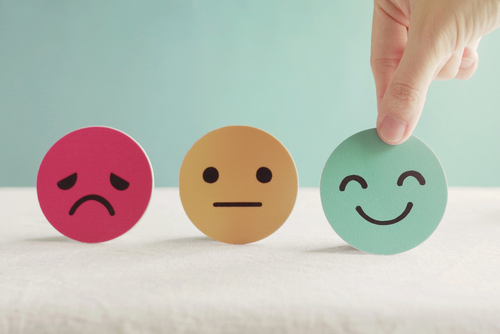Dialectical behavior therapy (DBT) is an evidenced-based psychotherapy approach, falling under the larger umbrella of cognitive behavioral therapy (CBT). CBT is often used in treating various mental health disorders (i.e. depression, post-traumatic stress disorder, eating disorders, etc.), however, research indicated that its effectiveness with individuals diagnosed with borderline personality disorder (BPD) was lacking. In the late 1980s, Marsha M. Linehan, who was at the time a psychology/ suicide researcher at the University of Washington, developed DBT to better treat chronically suicidal individuals and those struggling with BPD. The primary goal of DBT, according to Psychology Today, is to “transform negative thinking patterns and destructive behaviors into positive outcomes.” Although DBT was initially developed to treat individuals with BPD, it has become an effective and relied upon psychotherapeutic method in the treatment of other mental health conditions.
DBT Basics
DBT has a multifaceted approach as it includes individual psychotherapy sessions, group skills sessions, and phone coaching. Each therapeutic setting has its own structure and goals. There will often be out of session requirements (i.e. group skills homework) to help an individual continue to integrate and practice implementing the information learned into his or her daily life. The group skills sessions focus on teaching and practicing the four modules of DBT, which are: mindfulness (focusing skills), distress tolerance (crisis survival skills), emotional regulation (de-escalation skills), and interpersonal effectiveness (social/ relationship skills). Individual therapy sessions enable a client to process one-on-one issues that may arise during the group skills sessions’, clarify any confusion surrounding a skills assignment, and/ or practice personally applying and implementing the DBT skills to his or her own life. The phone-coaching component is intended to provide additional support should crisis arise between individual and group sessions.
Who Could Benefit?
Dialectical behavior therapy can help individuals that have a difficult time modulating strong emotions and/ or those that are emotionally vulnerable. The exact treatment plan developed for an individual struggling with a mental health disorder will depend on his or her specific needs. Many treatment plans will include a variety of therapeutic approaches, and in some cases medication. DBT remains the gold standard type of psychotherapy used for treating individuals diagnosed with borderline personality disorder who have thoughts of suicide and self-harm, but has also been noted as a potentially successful treatment option for other mental health conditions. The National Alliance on Mental Illness (NAMI) indicate that DBT may be an effective treatment for:
- Bipolar disorder
- Attention-deficit/ hyperactivity disorder (ADHD)
- Generalized anxiety disorder (GAD)
- Eating disorders
- Obsessive-compulsive disorder (OCD)
- Major depressive disorder
- Substance use disorder
- Post-traumatic stress disorder (PTSD)
Research has concluded that DBT can be effective regardless of a person’s gender identity, sexual orientation, age, and ethnicity/ race. DBT focuses on finding a balance in opposing forces. DBT places significant emphasis on learning how to accept and validate uncomfortable feelings, thoughts and/ or behaviors, instead of exerting energy on trying to push away, ignore, and/ or change discomfort. DBT empowers a client to learn applicable social and emotional skills, healthy coping mechanisms, and useful mindfulness techniques to enable a client to effectively cope with stress, live in the moment, regulate emotions, and improve relationships with others.




